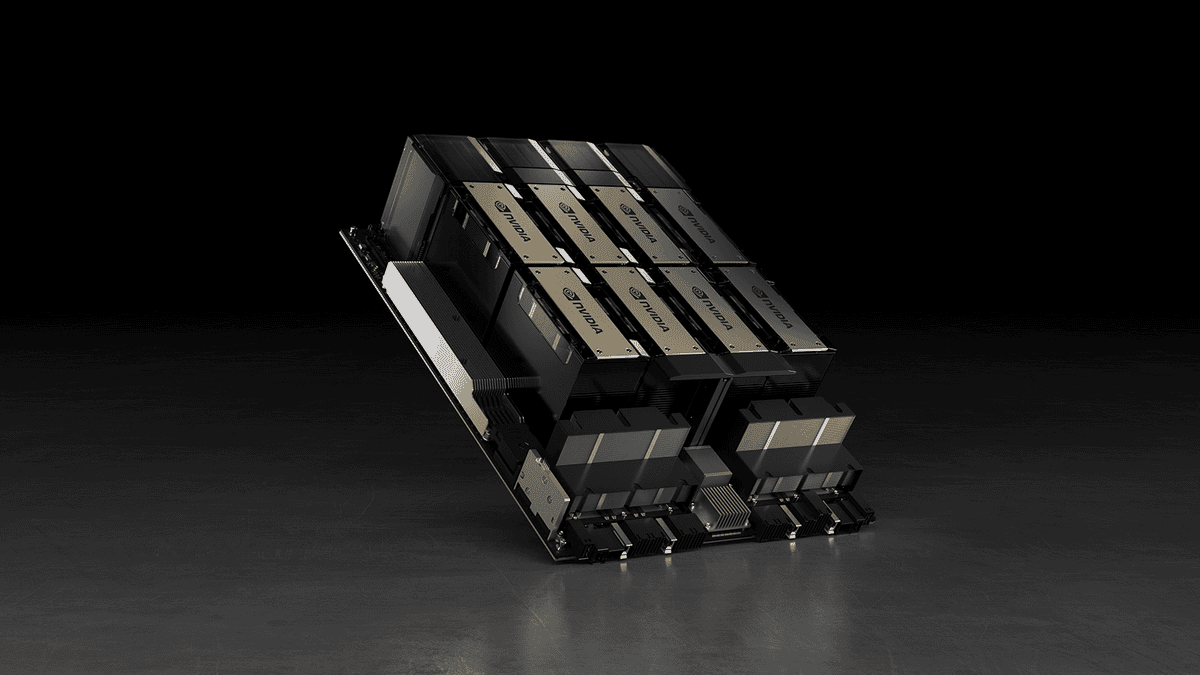Malaysia Partners with Arm Holdings to Boost AI Chip Production Capabilities
3 Sources
3 Sources
[1]
Malaysia signs deal with Arm to bolster chip ambitions
KUALA LUMPUR (AFP) - British chip giant Arm Holdings signed an agreement with Malaysia yesterday to bolster the Southeast Asian country's efforts to produce high-end semiconductors amid the United States (US)-China tech trade war. Malaysia is a key player in the vital chips sector but has been largely focused on packaging, assembly and testing services - the lower end of the market. The agreement will see Softbank-owned Arm provide chip designs and other technology, helping Malaysia to move into more value-added production such as wafer fabrication and integrated circuit design. The Southeast Asian nation is paying USD250 million over a decade to receive support from the British company, journalists were told at a briefing by Malaysia's Economic Ministry. "Through a comprehensive partnership with Arm, we have conceived one of the most ambitious technological plans Malaysia has ever seen - to pioneer Made-by-Malaysia artificial intelligence (AI) chips," Prime Minister Anwar Ibrahim said in remarks before witnessing the signing. "These chips will be designed, manufactured, tested and assembled here, and sold to the rest of the world." In addition, Arm will also establish its first office in Southeast Asia in Kuala Lumpur, aiming to expand the company's reach in the region as well as Australia and New Zealand, Anwar said. "We won't let you down. This is going to be an extremely exciting 10 years and more," said Arm chief executive Rene Haas. Malaysian Economy Minister Rafizi Ramli said the collaboration would enable Malaysia and Arm "to build a complete supply chain in advanced industries such as AI data servers, autonomous vehicles, IoT (internet of things), robotics and others". He said that around 10,000 local semiconductor engineers would be trained under the deal. Asia Pacific regional director at datacenterHawk Dedi Iskandar said the agreement would make Malaysia "as one of the elite countries in Asia-Pacific that possess advanced AI chip design capabilities other than Taiwan, and Singapore". "Malaysia is laying the red carpet and showing the world that they are serious in this tech war," he told AFP. A prominent player in the industry for decades, Malaysia accounts for an estimated 13 per cent of global back-end manufacturing, according to German tech firm Bosch. Malaysia's northern island of Penang, home to a number of facilities, is often dubbed the country's Silicon Valley. And in April 2024, Anwar announced plans to build a massive semiconductor design park, an effort to move Malaysia beyond chips production.
[2]
Malaysia signs deal with Arm to bolster chip ambitions
British chip giant Arm Holdings signed an agreement with Malaysia on Wednesday to bolster the Southeast Asian country's efforts to produce high-end semiconductors amid the US-China tech trade war. Malaysia is a key player in the vital chips sector but has been largely focused on packaging, assembly and testing services -- the lower end of the market. The agreement will see Softbank-owned Arm provide chip designs and other technology, helping Malaysia to move into more value-added production such as wafer fabrication and integrated circuit design. The Southeast Asian nation is paying $250 million over a decade to receive support from the British company, journalists were told at a briefing by Malaysia's economic ministry. "Through a comprehensive partnership with Arm, we have conceived one of the most ambitious technological plans Malaysia has ever seen -- to pioneer Made-by-Malaysia AI chips," Prime Minister Anwar Ibrahim said in remarks before witnessing the signing. "These chips will be designed, manufactured, tested and assembled here, and sold to the rest of the world." In addition, Arm will also establish its first office in Southeast Asia in Kuala Lumpur, aiming to expand the company's reach in the region as well as Australia and New Zealand, Anwar said. "We won't let you down. This is going to be an extremely exciting 10 years and more," said Arm chief executive Rene Haas. Red carpet Malaysian Economy Minister Rafizi Ramli said the collaboration would enable Malaysia and Arm "to build a complete supply chain in advanced industries such as AI (artificial intelligence) data servers, autonomous vehicles, IoT (internet of things), robotics and others." He said that around 10,000 local semiconductor engineers would be trained under the deal. Dedi Iskandar, Asia Pacific regional director at datacenterHawk, said the agreement would make Malaysia "as one of the elite countries in Asia Pacific that possess advanced AI chip design capabilities other than Taiwan, and Singapore." "Malaysia is laying the red carpet and showing the world that they are serious in this tech war," he told AFP. Tensions between Washington and Beijing over advanced tech, especially semiconductors, in recent years have forced many firms to look into relocating their manufacturing from China to other countries including Malaysia, Vietnam and India. "This deal creates equilibrium to the region as Taiwan is always a sore thumb between China and US tech war, and Malaysia are friends to both of them," added Dedi. A prominent player in the industry for decades, Malaysia accounts for an estimated 13 percent of global back-end manufacturing, according to German tech firm Bosch. Malaysia's northern island of Penang, home to a number of facilities, is often dubbed the country's Silicon Valley. And in April 2024, Anwar announced plans to build a massive semiconductor design park, an effort to move Malaysia beyond chips production.
[3]
Malaysia to pay Arm Holdings $250 million for chip design blueprints
KUALA LUMPUR, March 5 (Reuters) - Malaysia will pay Arm Holdings $250 million over 10 years to acquire the firm's chip design plans for local manufacturers, the government said on Wednesday as it looks to produce its own chips within the next decade amid an AI boom. The Southeast Asian nation plans to produce its own graphics processing unit chips in the next five to 10 years as demand for artificial intelligence and data centres grows. Economy Minister Rafizi Ramli said the government will pay Arm for its intellectual property, including seven of its high-end chip design blueprints. The deal will also involve the training of 10,000 engineers in Malaysia, Rafizi told media ahead of the deal's formal announcement. Malaysia hopes the deal with Arm will allow domestic producers to scale up, creating 10 local chip companies with yearly revenue of $1.5 to $2 billion each, Rafizi said. The economy ministry and Arm will each have a set of selection criteria for the local companies, given the value of the intellectual property involved and to ensure successful production, Rafizi added. The government will identify local companies with the capabilities and expertise to quickly begin manufacturing. A host of technology giants, including Microsoft, Nvidia, Alphabet unit Google, and China's ByteDance, have announced billions of dollars of digital investments in Malaysia since 2023, mostly in cloud services and data centres, powering an infrastructure boom driven by growing AI demand. Last April, Malaysia said it planned to build Southeast Asia's largest integrated-circuit design park and would offer incentives including tax breaks, subsidies and exemption from visa fees to attract global tech companies and investors. Prime Minister Anwar Ibrahim said the park will house world-class anchor tenants and collaborate with global companies such as Arm.
Share
Share
Copy Link
Malaysia signs a $250 million deal with British chip giant Arm Holdings to acquire high-end semiconductor designs and technology, aiming to produce its own AI chips within the next decade.

Malaysia's Ambitious Plan for AI Chip Production
In a significant move to bolster its semiconductor industry, Malaysia has signed a $250 million agreement with British chip giant Arm Holdings. This 10-year deal aims to elevate Malaysia's position in the global chip market, particularly in the realm of artificial intelligence (AI) chip production
1
2
.Strategic Partnership Details
The partnership between Malaysia and Arm Holdings involves several key components:
-
Chip Design Acquisition: Malaysia will receive seven high-end chip design blueprints from Arm, enabling local manufacturers to produce advanced semiconductors
3
. -
Technology Transfer: Arm will provide chip designs and other technologies to help Malaysia move into more value-added production, including wafer fabrication and integrated circuit design
1
2
. -
Training Initiative: The deal includes plans to train approximately 10,000 local semiconductor engineers, significantly boosting Malaysia's technical expertise in the field
1
2
3
. -
Arm's Regional Expansion: As part of the agreement, Arm will establish its first Southeast Asian office in Kuala Lumpur, extending its reach in the region, including Australia and New Zealand
1
2
.
Malaysia's Vision for the Semiconductor Industry
Prime Minister Anwar Ibrahim highlighted the ambitious nature of this partnership, stating, "We have conceived one of the most ambitious technological plans Malaysia has ever seen - to pioneer Made-by-Malaysia AI chips"
1
2
. The government envisions:-
Complete Supply Chain: The collaboration aims to build a comprehensive supply chain for advanced industries such as AI data servers, autonomous vehicles, IoT, and robotics
2
. -
Local Production: The goal is to design, manufacture, test, and assemble AI chips in Malaysia for global distribution
1
2
. -
Economic Impact: Malaysia hopes to create 10 local chip companies, each with annual revenues of $1.5 to $2 billion
3
.
Related Stories
Global Context and Industry Implications
This partnership comes amid the ongoing US-China tech trade war, positioning Malaysia as a potential alternative in the global semiconductor supply chain
1
2
. Industry experts view this move as significant:-
Regional Competitiveness: The deal could elevate Malaysia to join Taiwan and Singapore as countries with advanced AI chip design capabilities in the Asia-Pacific region
2
. -
Balancing Act: Malaysia's friendly relations with both China and the US could provide a strategic advantage in the current geopolitical climate
2
. -
Infrastructure Development: The agreement aligns with Malaysia's plans to build Southeast Asia's largest integrated-circuit design park, announced in April 2024
1
2
3
.
Challenges and Future Outlook
While the partnership presents significant opportunities, several challenges lie ahead:
-
Implementation Timeline: The goal of producing Malaysia's own GPU chips is set for the next 5 to 10 years, requiring sustained effort and investment
3
. -
Company Selection: The government and Arm will need to carefully select local companies capable of utilizing the valuable intellectual property effectively
3
. -
Market Competition: Malaysia will need to compete with established players in the high-end semiconductor market, requiring significant technological advancement and market penetration strategies.
References
Summarized by
Navi
[1]
[3]
Related Stories
Malaysia Enters Global AI Race with First Domestic Edge AI Processor
28 Aug 2025•Technology

Malaysia Implements Trade Permits for U.S. AI Chips Amid Global Export Control Concerns
14 Jul 2025•Policy and Regulation

Malaysia Clarifies Stance on AI Project Involving Huawei Chips Amid US-China Tech Tensions
21 May 2025•Technology

Recent Highlights
1
ByteDance's Seedance 2.0 AI video generator triggers copyright infringement battle with Hollywood
Policy and Regulation

2
Demis Hassabis predicts AGI in 5-8 years, sees new golden era transforming medicine and science
Technology

3
Nvidia and Meta forge massive chip deal as computing power demands reshape AI infrastructure
Technology





